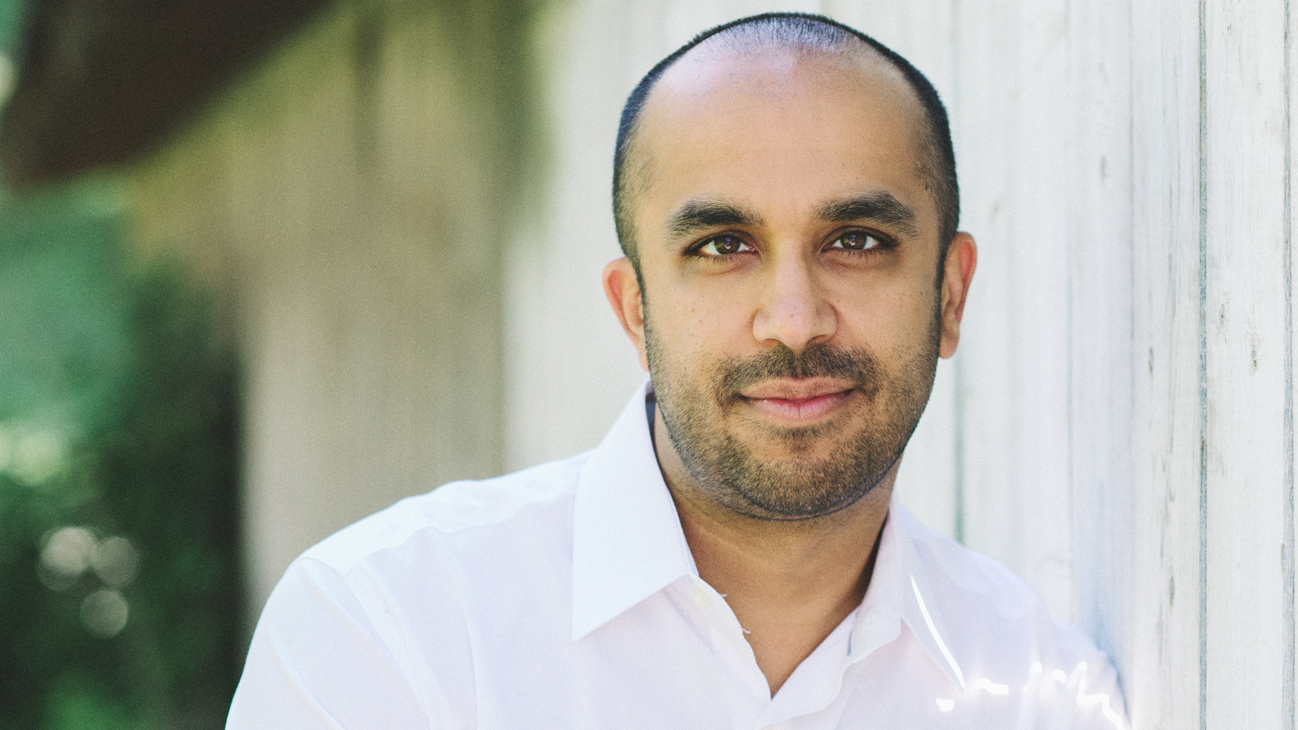A Harvard MBA, New York Times bestselling author, award-winning blogger, and one of the most popular TED speakers in the world, Neil Pasricha is “a pied piper of happiness”* who dazzles audiences with ideas and frameworks that skyrocket happiness into the stratosphere. With infectious enthusiasm, heartfelt authenticity, and a “what works” authority, Pasricha draws on the latest research in happiness to increase individual performance and create a more positive and productive workplace. In this column for The Toronto Star, Neil explains why the first step to finding confidence is defining it:
Confidence.
It’s that magical stardust we’re all looking for, isn’t it? We read all the time how we need confidence to ask someone out on a date, speak up in a big meeting or have a tough conversation with our partner or kids.
But if you’re like me you probably feel your confidence wobbling up and down all the time. You have good days. You have bad days. Seal the big deal? Feel great! Ready to rock. Get tough feedback from your boss? Game over. Feels like you’re back at square one.
To me the solution to developing confidence first lies in defining it. If we can explain it simply then it becomes easier to manage inside ourselves. So I draw something called The Confidence Scribble to help.
On one side you have your opinion of yourself. Sure, it will flip-flop all the time. But let’s say in any instant it can be high or it can be low. Does confidence just have to do with your opinion of yourself?
No!
Most people think it does. But we always have an opinion of others, too. That’s the other side of the box. So let’s get going.
What do you call people with a high opinion of themselves and a low opinion of others?
They’re not confident. They are . . .
Stuck-up. Egotistical. Big-headed. Arrogant people are not confident because they don’t understand that having a high opinion of others doesn’t lower their opinion of themselves. They are affected by other people’s confidence! It makes them feel weak. So they try to lower that confidence while increasing their own. Remember the schoolyard bully who actually feels bad about himself deep down? This is the guy we’re talking about here. This is the guy who feels the need to be better than others in order to be good at all.
Next box.
What do you call people with a high opinion of others but a low opinion of themselves?
We’ve all been there! We think greatly of other people and believe ourselves to be “lesser than.” You feel this way when you stare at a group photo and say something like “Oh my God! I look hideous! You look great, though.” Talk about beating yourself up. High opinion of others. Low opinion of yourself.
Insecure.
Now, what do you call people with a low opinion of themselves and a low opinion of others? No high opinions of anyone at all!
We’ve all been here, too. Bad days, bad bosses, big mistakes. We can get into a funk and see problems everywhere. We become cynical. The cynic isn’t confident. Cynical is the furthest thing from confident! As Conan O’Brien said on his final episode hosting The Tonight Show, “All I ask of you is one thing: Please don’t be cynical. I hate cynicism — it’s my least favourite quality and it doesn’t lead anywhere.”
What’s left? What do the truly confident people have? They have a high opinion of themselves. And! They have a high opinion of others, too. That is the true definition of confidence.
So as you keep navigating your curvy road through life remember to check in with your opinions of yourself and of others. I find myself dialing up and down the dials on days I feel arrogant, insecure, or cynical. Accepting these emotions is part of the solution. Remember the goal isn’t to be perfect. It’s to be better than before.
So be kind to yourself and let’s close with a quote from Buddha:
“You can search throughout the entire universe for someone who is more deserving of your love and affection than you are yourself and that person is not to be found anywhere. You yourself, as much as anybody in the entire universe, deserve your love and affection.”

